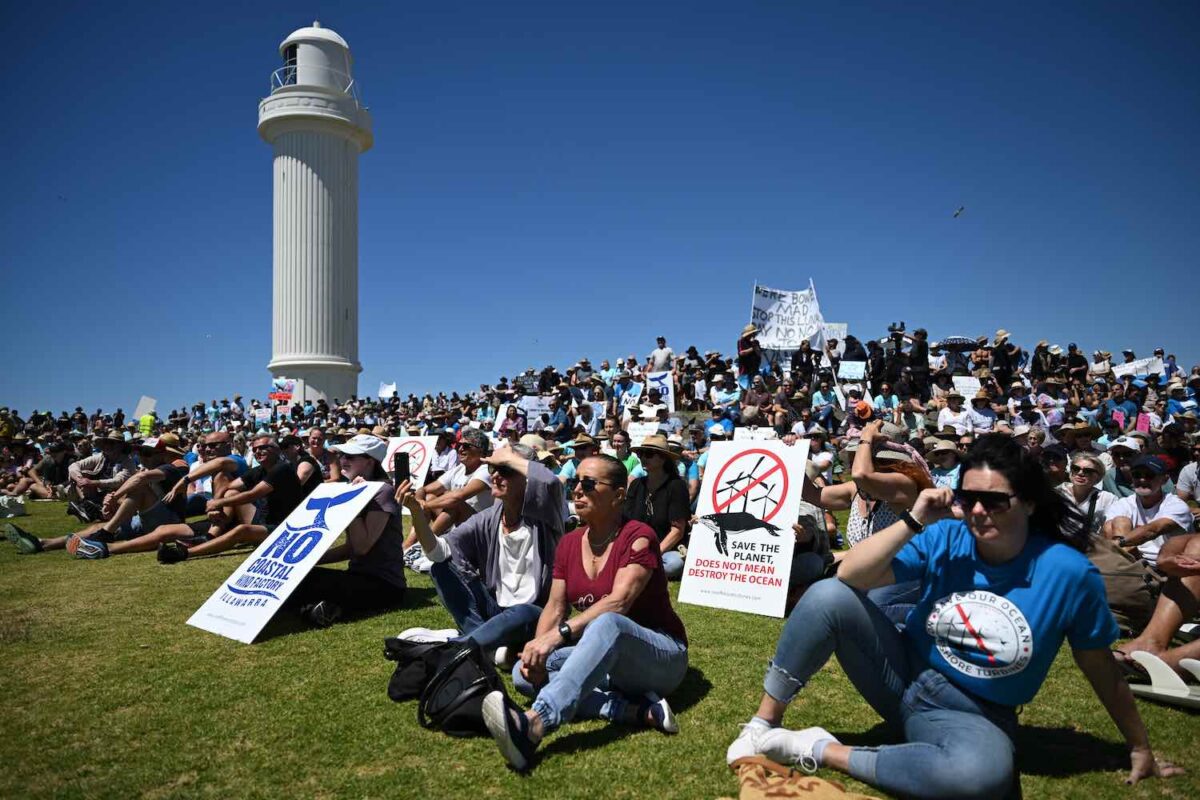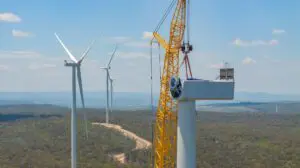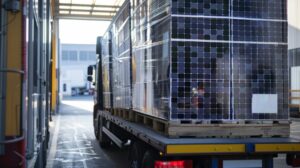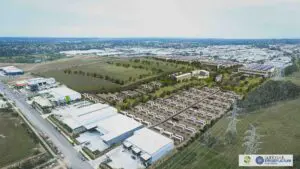Renewable energy and transmission project developers could soon be able to opt in to an independent rating scheme that ranks their community engagement performance, track record and capability, as part of a series of recommendations of a major review led by Australian Energy Infrastructure Commissioner Andrew Dyer.
The review, commissioned by federal energy minister Chris Bowen in July of last year, was published on Friday, just days just days before a major anti-renewables rally is set to be staged outside Parliament House in Canberra.
The review – based on more than 75 meetings with 700-plus participants and more than 500 submissions – finds that repeated instances of poor community engagement has led to a “material distrust” of renewable energy project developers and, in particular, developers of major new grid transmission projects.
As the below chart shows, surveys conducted with landholders and community members returned some pretty bleak feedback, with 95 per cent of respondents going on the record as dissatisfied with the extent of community engagement. Another 89 per cent said they weren’t satisfied with the explanations developers gave them in response to their questions and concerns.

On the other side of the equation, the report notes that some developers, too, had expressed frustration about the wider negative impact that poor quality community engagement was having on the reputation of the industry.
To help remedy this, Dyer and his team make nine key recommendations, all of which have been accepted “in principle” by the Albanese government, according to a statement from Bowen on Friday.
Two of these recommendations are focused on improving community engagement practices on the developer side of the equation by motivating them to do better, including through the establishment of an independent rating scheme, designed in consultation with governments, industry, peak bodies and indigenous and community groups.
“The should provide transparent, periodic ratings of developer engagement performance and capability. It should also be designed in such a way to motivate ongoing continuous improvement by the developers,” the report says.
“To expedite its launch, it is suggested that the scheme operate on a voluntary scheme basis, where developers can opt in or out at any time. The scheme would be open to developers and operators throughout Australia.”
According to the report, developers were generally supportive of a scheme that would enable communities to identify “capable and quality developers” and “build community confidence with developers who are effective in engagement and have a culture of integrity and professionalism.”
Other recommendations in the report include addressing a range of planning process challenges that have been observed to exacerbate community angst around renewable energy developments.
These include reducing unnecessary community engagement by improving the way project sites are selected in the first place; increasing early local collaboration, and; revising planning and approval processes to be more transparent and streamlined when it comes to community feedback.
Dyer also recommends improving the process of complaints handling; keeping communities better informed on energy transition goals, benefits and needs, and; sharing the benefits of the transformation more equitably among communities.
The publication of the report and acceptance of its recommendations by federal Labor is timely, with the recent ramp-up in renewable and transmission planning and development activity undeniably causing varying degrees of community concern in parts of regional Australia.
Where developers and regulators and governments are failing to address and allay those concerns, long-time climate denying and pro-fossil fuel politicians from the far right are more than happy to step into the void.
And step into the void they have, coordinating another wind, solar, battery and transmission protest due to be staged in front of federal parliament on the first sitting day of the year, next week.
The success of the National Rally Against Reckless Renewables, wholeheartedly backed by former Nationals leader Barnaby Joyce and various other LNP and independent MPs, remains to be seen – farmers and landholders may be getting wise to the not-so hidden fossil and nuclear agenda. But the damage that’s been done to community trust cannot be ignored.
“Community engagement and effective communication are the antidotes to the misinformation that is being used to stir division within some regional communities,” said Clean Energy Council chief policy and impact officer Aaron Wood on Friday, in response to the review’s findings.
“Genuine engagement in good faith from all parties is needed to ensure that we get the balance right between managing community expectations and getting on with the job of building the generation, transmission and storage infrastructure that Australia urgently needs.”
RE-Alliance, which has been campaigning for years for social licence and effective community engagement to be prioritised by industry and governments, says that while the recommendations set out in the review are a good start, more needs to be done.
“The Commissioner’s detailed exploration of communities’ experience of renewable energy development is valuable and long overdue,” said RE-Alliance national director Andrew Bray.
“While we support the Commissioner’s recommendations, more concrete and ambitious actions will be required to solve the problems he has rightly identified.
“State and federal governments are spending billions to attract investment in renewable energy, but financial investment in building trust in the process will be just as important.”
For its part, federal Labor says it will now work with states and territories, industry and communities to address the review’s findings and implement its recommendations.
“Local landholders and regional communities are absolutely crucial to our renewable energy transformation,” Bowen said on Friday.
“Where these projects are done well, communities benefit from more jobs, cheaper energy, better connectivity and more business opportunities. And I am/we are determined to make the transformation a positive experience for communities.
“This report signals to regional and rural communities that we are determined to improve developer engagement to provide better information about an individual’s rights, involve communities earlier and more effectively, and properly handle complaints,” Bowen said.
“Commissioner Dyer’s findings will help smooth Australia’s energy transformation and ensure greater project participation and equity.”







